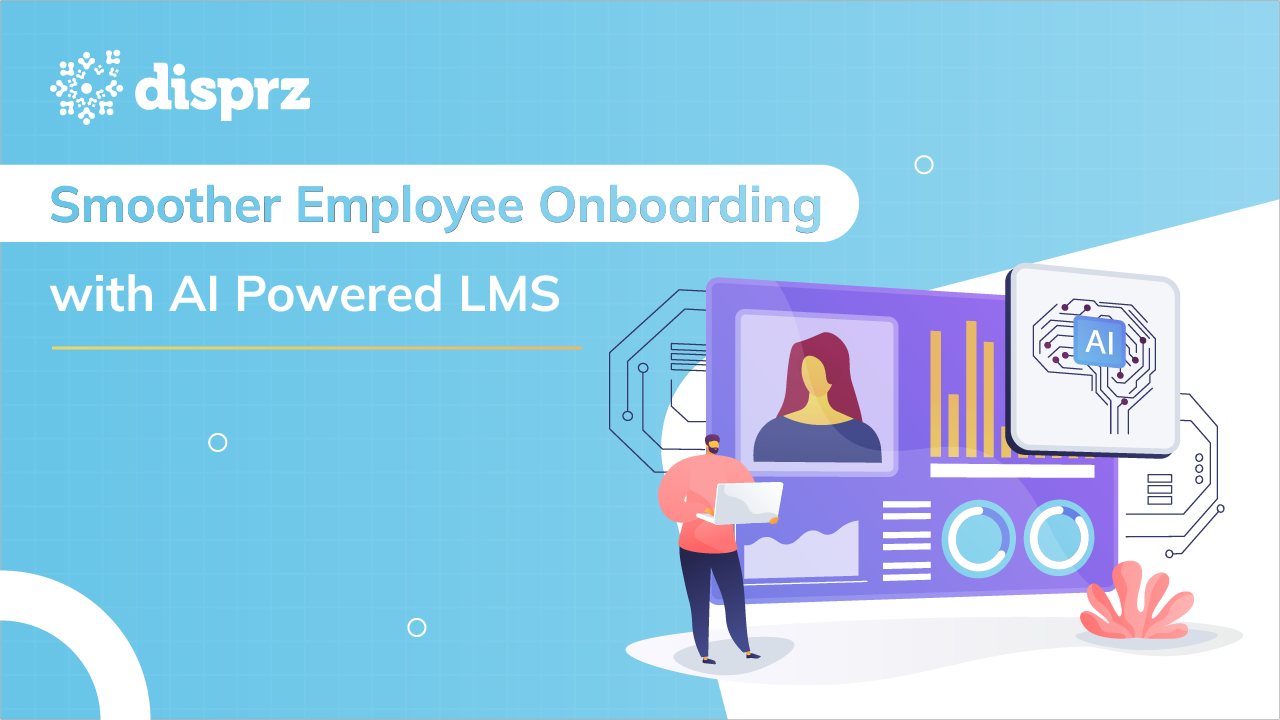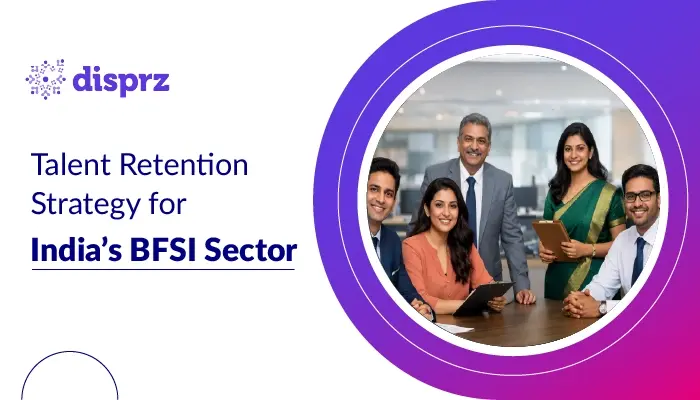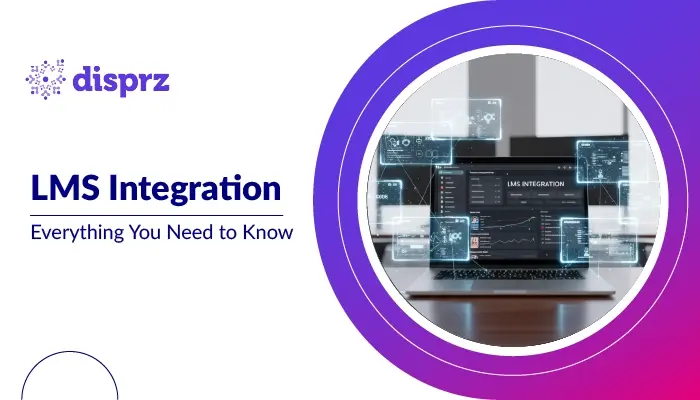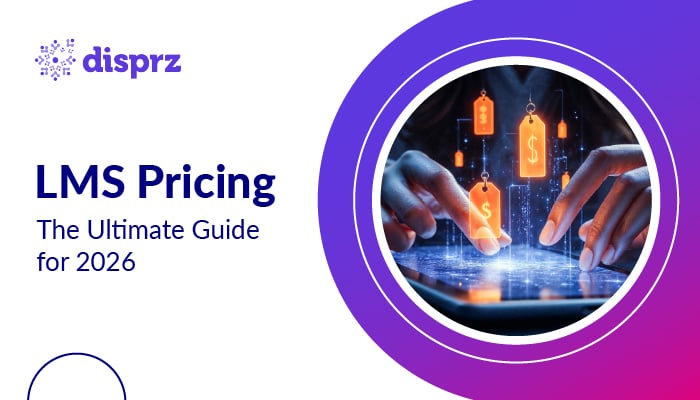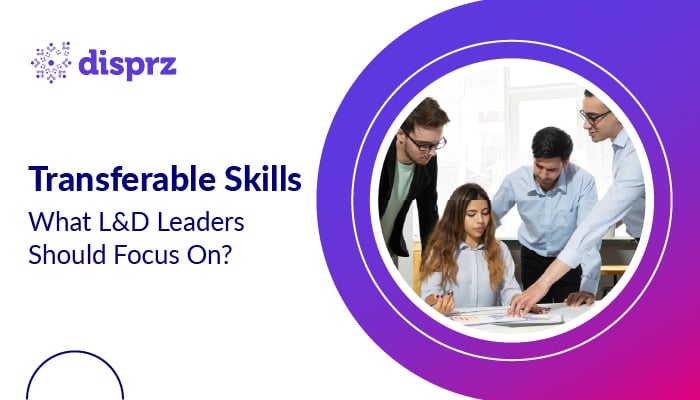The New Age of AI in Employee Onboarding
Employee onboarding is no longer just about filling out forms and attending orientation sessions. In today’s fast-paced business environment, organizations need to provide a seamless, efficient, and engaging onboarding experience to ensure new hires hit the ground running. Enter AI-powered employee onboarding; a transformative approach leveraging artificial intelligence (AI) to streamline processes, enhance personalization, and deliver exceptional employee experiences. For chief human resources officers (CHROs), learning and development (L&D) leaders, and human resources (HR) heads, understanding the potential of AI in employee onboarding is key to driving organizational success and building a future-ready workforce.
By automating administrative tasks, AI allows HR professionals to focus on strategic initiatives, such as fostering an inclusive company culture and nurturing employee growth. AI-powered employee onboarding tools provide valuable insights into the new hire’s progress, enabling HR teams to identify potential gaps in training and engagement. This data-driven approach not only improves efficiency but also enhances the overall onboarding experience, setting new hires up for long-term success within the organization.
Why Traditional Onboarding Needs an AI Makeover
Traditional onboarding processes are often manual, time-consuming, and prone to inconsistencies. HR teams spend countless hours managing paperwork, coordinating training schedules, and ensuring compliance. Despite their efforts, many new hires feel disconnected, overwhelmed, or underprepared during their initial days.
AI-driven onboarding strategies address these pain points by automating repetitive tasks, personalizing learning journeys, and offering real-time insights. By enhancing the onboarding experience with AI, this shift not only improves the process for employees but also empowers HR teams to focus on strategic initiatives rather than administrative duties.
Key Benefits of AI-Powered Employee Onboarding
AI-powered employee onboarding is reshaping the way organizations welcome and integrate new hires. By combining advanced technology with HR expertise, it delivers a seamless, engaging, and data-driven experience that benefits both employees and employers.
Here are some of the key advantages
Enhanced Personalization
AI tools analyze data from various sources to customize onboarding plans based on an individual’s role, skills, and preferences. Personalized onboarding with AI ensures new hires receive relevant information and resources, fostering engagement and retention.
Automation of Routine Tasks
From sending welcome emails to scheduling training sessions, AI can handle repetitive tasks efficiently, freeing up HR teams to concentrate on more impactful activities.
Faster Time-to-Productivity
AI onboarding tools streamline workflows and provide role-specific training, enabling new hires to become productive more quickly.
Improved Employee Experience
By leveraging AI, organizations can create an interactive and engaging onboarding journey, reducing stress and boosting confidence among new hires.
Data-Driven Insights
AI-powered analytics offer valuable insights into onboarding performance, helping HR teams identify areas for improvement and ensure continuous optimization.
Top AI Tools Transforming Onboarding Processes Today
Here are some of the top AI tools revolutionizing employee onboarding processes, making them more efficient, engaging, and seamless. These tools empower HR teams to deliver personalized, impactful experiences for new hires while streamlining operations:
Chatbots and Virtual Assistants
AI-driven chatbots provide 24/7 support, answering new hire queries and guiding them through the onboarding process.
Learning Management Systems (LMS)
AI-enabled LMS platforms deliver personalized training modules, ensuring employees receive relevant and engaging content.
Document Automation Tools
These tools simplify the handling of paperwork, ensuring compliance and reducing manual errors.
AI-Powered Feedback Platforms
Real-time feedback systems powered by AI gather insights from new hires, helping HR teams refine onboarding strategies.
Knowledge Management Systems
AI organizes and delivers essential resources, ensuring new employees have quick access to the information they need.
How AI Personalizes the Onboarding Journey for New Hires
Personalization is a game-changer in onboarding. AI uses data from pre-hire assessments, past experiences, and role-specific requirements to craft tailored onboarding plans.
Here’s how AI personalizes the onboarding journey:
Customized Learning Paths
AI-based platforms recommend courses and resources aligned with an employee’s skills and responsibilities.
Role-Specific Content Delivery
New hires receive information directly relevant to their job, avoiding information overload.
Behavioral Insights
AI-enabled tools track engagement levels and adapt onboarding activities to suit individual preferences, ensuring an engaging experience.
By tailoring every step of the onboarding process, AI ensures that employees feel valued and well-prepared from day one.
Automation in Onboarding: Reducing Manual Efforts with AI
Automation in onboarding is transforming traditional processes, enabling HR teams to focus on strategic goals rather than time-consuming manual tasks. By integrating AI, organizations can streamline operations, enhance accuracy, and provide a seamless experience for new hires.
Here’s how AI-powered automation is revolutionizing key onboarding activities
Document Verification and Processing: AI-based solutions can scan, verify, and organize documents efficiently, ensuring compliance and accuracy.
Scheduling and Notifications: Automated systems manage schedules for training sessions, orientation meetings, and feedback reviews.
Performance Tracking: AI monitors onboarding progress, sending reminders and alerts to ensure milestones are met.
Automation not only saves time but also minimizes errors, creating a smoother experience for both HR teams and new hires.
AI Use Cases: Real-World Applications in Employee Onboarding
AI is transforming employee onboarding across industries, delivering tailored experiences that drive engagement, efficiency, and results.
Here are some real-world use cases showcasing how organizations are leveraging AI to redefine onboarding processes
Multinational Corporation Streamlines Global Onboarding
A global organization used AI-powered onboarding tools to create a unified experience across multiple regions. AI translated resources, ensured compliance with local regulations, and personalized training for cultural nuances.
Startup Enhances Employee Retention
A tech startup leveraged AI-driven onboarding strategies to provide new hires with instant access to mentors, role-specific learning modules, and progress trackers. This approach reduced turnover rates by 20% within the first year.
Healthcare Provider Improves Compliance Training
An AI-enabled LMS helped a healthcare company automate compliance training for new staff, ensuring 100% adherence to regulations while reducing manual effort by 30%.
Retail Chain Boosts Productivity
A retail company implemented AI-based onboarding tools to deliver interactive, gamified training modules tailored to different roles, cutting the time-to-productivity by 25%.
Overcoming Challenges in AI Integration for Onboarding
While AI-powered onboarding offers tremendous benefits, organizations may face several challenges when integrating these tools. Addressing these challenges is key to ensuring smooth adoption and maximizing the potential of AI in enhancing onboarding processes.
Below are some common hurdles organizations may encounter:
Data Privacy Concerns: Organizations must ensure compliance with data protection regulations when using AI.
Resistance to Change: Both HR teams and new hires may be apprehensive about adopting new technologies. Clear communication and training are essential to address these concerns.
Implementation Costs: Investing in AI tools can be expensive initially. However, the long-term benefits in terms of efficiency and employee satisfaction often outweigh the costs.
Integration with Existing Systems: Seamlessly integrating AI onboarding tools with current HR systems requires careful planning and execution.
Conclusion
AI-powered employee onboarding is revolutionizing how organizations integrate new hires, offering unparalleled efficiency, personalization, and engagement. By leveraging AI onboarding tools, CHROs, L&D leaders, and HR heads can enhance employee experiences, reduce manual workloads, and drive organizational success. The transformative potential of AI-driven onboarding strategies ensures that every new hire’s journey begins on the right note, setting the stage for seamless transitions and long-term contributions.
AI onboarding tools provide real-time insights into new hire progress, enabling HR teams to identify and address challenges proactively. These tools personalize training modules, learning platforms, and foster immediate engagement, ensuring that employees feel valued and supported from day one. By automating routine tasks, AI empowers HR professionals to focus on strategic initiatives, ultimately creating a more cohesive and motivated workforce.
As the workplace continues to evolve, adopting AI in employee onboarding is a necessity for staying competitive and building a resilient, future-ready workforce. Embrace AI today to create onboarding experiences that truly resonate with the demands of the modern employee and organization alike.



